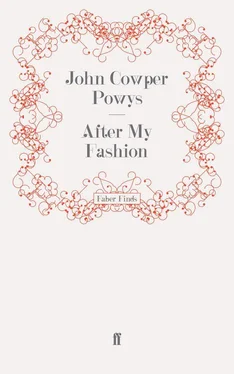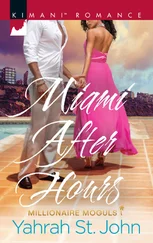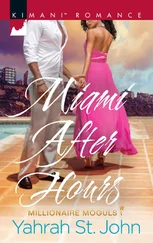Here, in this English country-town there was a meticulous cleanliness and neatness showing itself in a thousand charming ways, from the aprons of the little girls to the wheels of the farmers wagons.
And it was all so deep-rooted and instinctive, so unconscious and taken-for-granted! It was not, it seemed to him, as he drank his fifth cup of tea and nibbled his fifth ‘halfpenny’ bun, any sort of conscious art-impulse that had produced it in those simple, self-centred, humorously wily men and those cheerful, secretive, patient women. It was a kind of immemorial moral code, touched here and there with a faint tincture of religious unction, like the half-mechanical performance of some very old ritual.
He went out into the street in extraordinarily good spirits. The shiny-faced young woman to whom he tendered payment had looked at him with that quick indescribable look, full of innocent subtleties, with which the simplest maiden can enchant and disarm a philosopher.
He stepped into one of those small tobacconist shops that display among their glossy pipes and smoking-materials such a vast assortment of dignified walking sticks as would supply all the elderly beaux of England with the insignia of retired leisure.
Emerging, still more well-pleased from this repository of epicurism, fortified with an immense number of cigarettes and a second entrancing smile, Richard seated himself upon a comfortable bench, just within the precincts, and gave himself up to meditation.
A queer mood of languid and drowsy indifference came upon him, as the hot sun warmed his limbs and the voices of children ebbed and flowed. It seemed to him as though nothing in the world greatly mattered so long as quiet harmless people could go about their affairs, undisturbed by official arrogance and unvexed by words of command.
The very secret of English life, a thing not of politics or economics, but of the obstinate right of every Englishman to meditate upon his own sensations in reserved isolation, took possession of him and gave to the brooding voices of the doves, hidden away among the trees of the dean’s garden, a symbolic significance.
By slow degrees, as he sat there, the encroaching spell of sheer physical well-being, emanating from every object within sight, covered him with a kind of pleasant cloud of leafy vegetable contentment.
He smoked and nodded. He nodded and dreamed. And over his head the rooks went by and the elm trees faintly stirred in the warm wind and a hidden clock from somewhere, with a voice that might have been the voice of generations of dead bishops, chimed the slowly moving quarters.
His relaxed and drowsed nerves, freed from the feverish tension of his Paris life, responded to some profound atavistic appeal in that soil, that air, that sun-bathed masonry, those silent tree trunks.
He dimly regretted the fierce passion of his struggles to articulate and intellectualize his life. Why should he articulate anything, or analyse anything, when it was possible to let his soul sink peacefully into the being of these old calm eternal things, until it became a portion of them and lived their life, large-flowing, placid, deep- ruminating, unruffled, content?
In the process of these thoughts, Richard’s eyes found themselves negligently fixed upon a remote untraversed grass-plot, surrounded by smaller houses, lying a little back of the main cathedral close. Little by little he became aware that the stream of his meditation was flowing over some hard, resistant and hostile object that disturbed its smooth current like a sharp rock.
At last there came to him the sudden jerking consciousness that he was looking at a familiar figure seated before an easel. Yes! even at that distance the empty sleeve was visible. But what brought his mind into a different focus with a yet more violent jerk was the sight of a slim flexible figure in a thin summer dress bending over the artist’s shoulder and watching every stroke of his brush.
The observing demon in Richard’s brain did not fail to prod him into recording the fact that the sight of his little new acquaintance completely destroyed the drowsy trance of the preceding hour.
He got up and began walking slowly, and with all the negligence he could assume, towards the pair.
As he moved, his heart beating a little more quickly than usual, and his head turned rather ostentatiously towards the cathedral, that same mocking demon in his brain kept whispering to him the sardonic comment that the only cure for the mania for one woman was another woman. ‘You are making the most of this organ maid,’ whispered the voice, ‘because you know well that with all your fine resolutions your heart is still in the Théâtre des Arts.’
But even below this demon voice yet another interior commentator made itself audible. This second mental imp challenged the sincerity of the first one and protested that what Richard was really trying to evade was the shameful confession that he was just simply a fickle philanderer who, while more dangerous sport was renounced, made the best of safer pleasures.
Richard himself found it difficult enough as he rather nervously ‘stalked’, so to speak, the ‘position’ of his acquaintances to give an adequate answer to either of these voices. What he actually achieved, before he greeted her, was a rapid association of this friendly child with his vaguely outlined poetic impulse.
She seemed, in the quietness of her conscious reserve and the steadiness of her look, to be in some secret ‘rapport’ with the vision of things towards which he was groping.
There was an unpleasant moment of embarrassed approach across that secluded grass-plot while the girl hurriedly pointed him out to her artist companion. But she came with a quick eager step to meet him and he felt sure there was no dissimulation in her unconcealed friendliness.
Robert Canyot rose to his feet, removed his hat with his left hand and sat down again.
Nelly lifted her eyebrows with an imperceptible little grimace and a faint shrug of her shoulders, as though to indicate that the hopeless naïveté of men passed the limit of comprehension.
‘Are you interested in painting?’ she said, turning to Storm with an unmistakable appeal to him to be sensible and tactful.
‘He won’t be interested in my painting,’ remarked Mr Canyot, ‘if he’s been long in France.’
There lurked in this speech a double implication; that the French in general were crazy fanatics and that Storm in particular was a priggish dilettante primed with the latest aesthetic pose.
Having thrown out this remark Mr Canyot went on applying colour to his canvas with the sort of self-satisfied indifference with which a competent builder might regard an amateur architect.
Richard longed to give the fellow’s complacency some kind of a shock; but when he looked at the picture on the easel he was startled to observe that there were real signs there of a noticeable originality. The style of the thing appealed to him. He knew enough of the studios to know that this was not ordinary work. The man was clearly no fool at his job.
‘I like the way you’ve gone straight to the atmosphere of the place,’ he found himself saying. ‘It isn’t the cathedral or the trees or the houses; it’s something much more important. It’s the happiness of England that you’re after.’
Nelly Moreton looked as if she could have kissed him for his words. Her face lightened up as though the flesh of it had become transparent. ‘Yes! that’s just what I’ve been telling him. Look at that branch against the buttress! They seem to melt into each other. And you can actually see the warm air flowing round them both, caressing them both!’
They contemplated Mr Canyot’s quick decisive movements in silence for a while. Then the girl laid her hand on the artist’s shoulder. ‘We won’t disturb you any more, Robert. I’ll take Mr Storm to see Canon Ireton’s garden. They’re all away; but I’m allowed to take anyone. He’ll be pleased with it. The peonies are wonderful.’
Читать дальше











